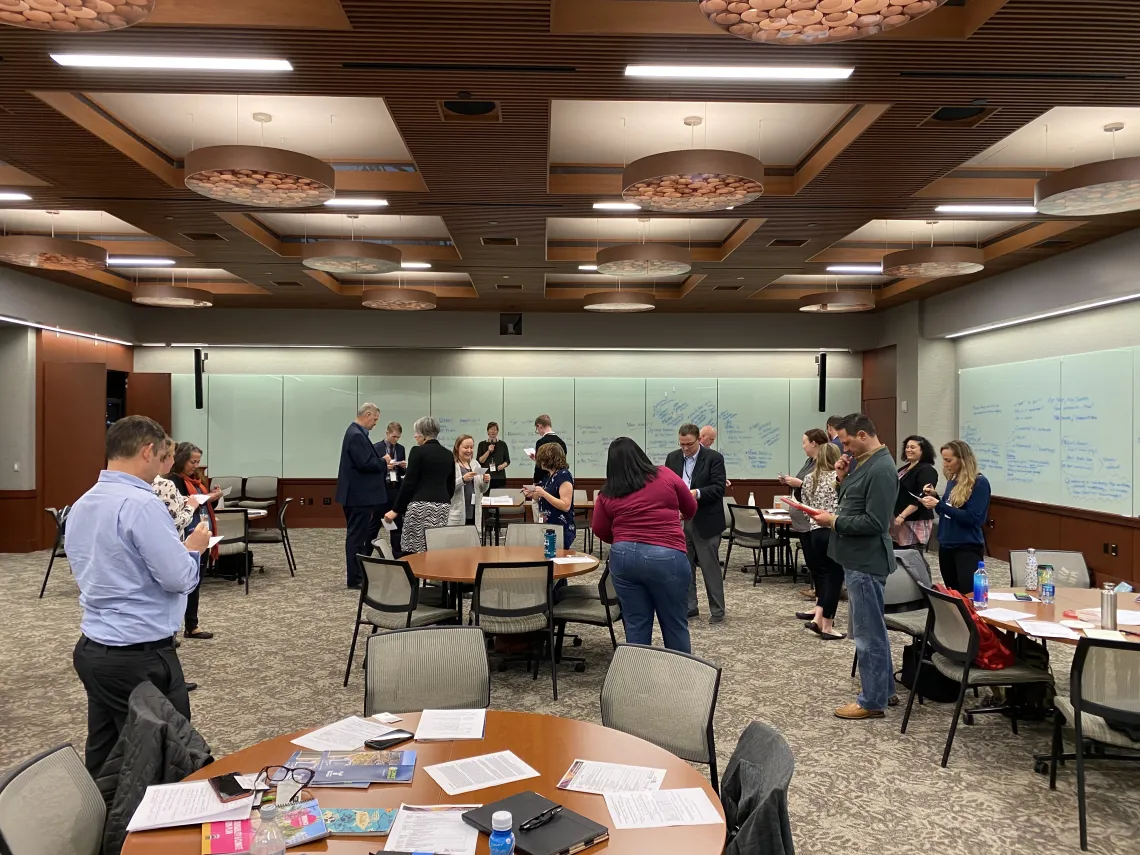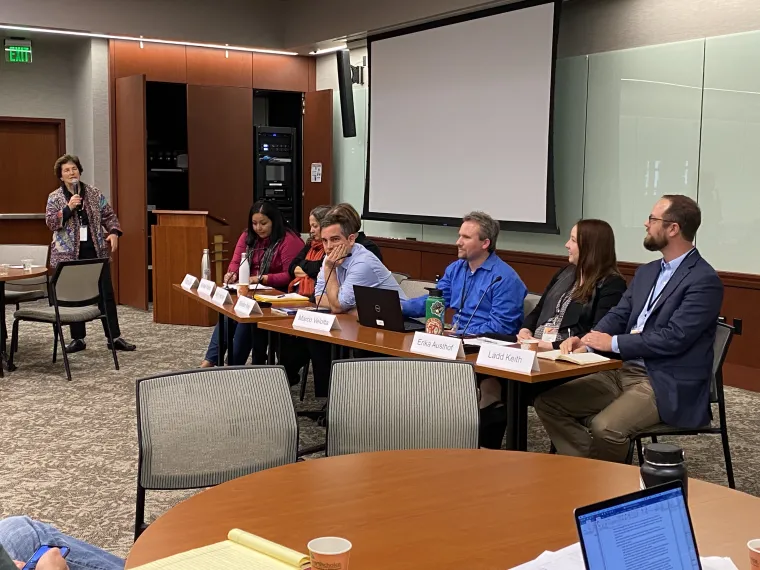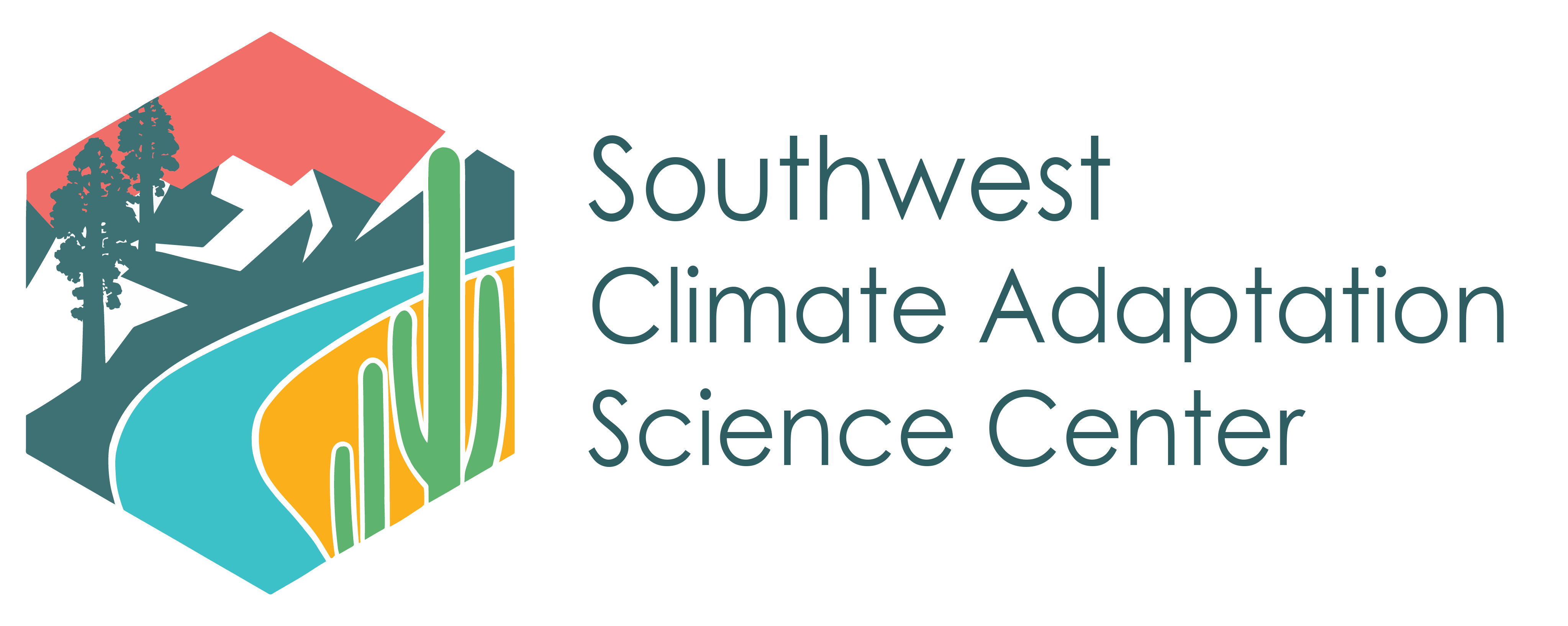Boundary SPANning: Developing the Southwest Practitioners Adaptation Network

In late October 2018, the Southwest Climate Adaptation Science Center (SW CASC) and the Center for Climate Adaptation Science and Solutions (CCASS), co-convened the inaugural Southwest Adaptation Forum (SWAF) at the University of Arizona in Tucson. Around 100 adaptation and assessment practitioners from across the Southwest U.S. gathered at SWAF to discuss lessons learned and best practices around five main adaptation theme areas: tribal adaptation and resilience, working and public lands, the wildland urban interface, built environments, and public health. The organizers of SWAF 2018 defined its goals as: 1) to strengthen existing and build new relationships among climate adaptation and assessment practitioners in the region; 2) to identify gaps in our existing stakeholder and practitioner networks; 3) to generate synergy and momentum for future engagement among partners and stakeholder groups; and 4) to position this emergent network to take tangible action on adaptation and assessment issues.
One of the main outcomes from conversations at SWAF was a decision to move forward with building a network of networks in the Southwest dedicated to bringing together adaptation and assessment practitioners and facilitating the exchange of experiences and best practices in the region on an ongoing basis. A cooperative agreement between CCASS and the U.S. Geological Survey through the SW CASC, created and funded the Southwest Practitioners Adaptation Network (SPAN) to achieve this goal and work toward supporting partnerships and collaborations through network building. While the goals of SPAN remain very similar to those of SWAF listed above, the main pillars, or building blocks, of SPAN include: 1) science-focused partnerships, assessment, and translation; 2) capacity and network building, information sharing, and convenings; and 3) community engagement and science to action components.
SPAN project leads started 2020 off hopeful that at least three in-person convenings could be held over the next year in order to bring practitioners together in various Southwest cities around themes of local importance with a focus on identifying key priority concerns. The SPAN leads and members of the advisory team saw this as an opportunity to build out regional “nodes” (areas of relatively high adaptation activity and connected practitioners) and offer opportunities for disparate groups to come together and discuss common concerns. The SPAN launch event took place on February 7, 2020 at the University of Nevada, Las Vegas and focused on climate change, public health, and impacts of extreme heat in urban environments. Thirty-three adaptation and assessment practitioners from across the Southwest attended, with a primary focus on the southern Nevada region. The workshop report from this event is available online and includes a page of helpful resources that were either mentioned at the event or shared by participants after the fact. Of course, shortly after the launch event occurred, COVID-19 halted our plans for additional in-person events.
Due to the ongoing pandemic, the SPAN project team has made a decision to slightly pivot and focus more on what we can do virtually to build and expand the network during this time of uncertainty. Questions we continue to ask ourselves include: what can we do during the pandemic to help adaptation practitioners continue to think about resilience in their work in a meaningful way? How can we best support this network and efficiently use members’ time when time is becoming a finite and precious resource? What is the role and value of networks that can be articulated to incentivize people to participate?

Currently, the SPAN project team is working on developing a website and network visualization tool with the help of an independent consultant and additional funding from the American Society of Adaptation Professionals (ASAP) Hubs Microgrant program. The main goals of the microgrant program are to catalyze collaborative adaptation projects and stimulate grassroots involvement in the ASAP network. SPAN, along with the Asheville Climate Equity Dialogue and the Baldwin Hills Conservancy Resilience Hub Los Angeles, make up the first cohort of this program. The network visualization tool will allow SPAN members to see connections between individuals and organizations. In addition, we hope that a member profiles function will facilitate collaborations by displaying skills and knowledge that members would like to give to and/or get from others. Through the development of the website and network visualization tool, we hope to increase member connectivity and allow for better access to resources, expertise, and events. Improving this critical network infrastructure will catalyze SPAN’s member engagement across the Southwest and enhance connections to the ASAP network regionally and nationally.
In light of continued COVID-19 restrictions, the SPAN project team will organize more virtual events and continue finding ways to support and build the network in an online environment. The next Southwest Adaptation Forum (SWAF) will take place in spring 2021 and will be virtual. SWAF 2021 will focus on embedding all theme areas and topics in tribal adaptation and resilience and we hope this will offer an opportunity for SPAN members to engage and participate in a larger regional adaptation event. If you are already connected to SPAN, please keep an eye out for upcoming emails and announcements. If you would like to learn more or if you are an adaptation or assessment practitioner in the Southwest and want to get connected, please reach out to Amanda Leinberger at aleinberger@arizona.edu.

